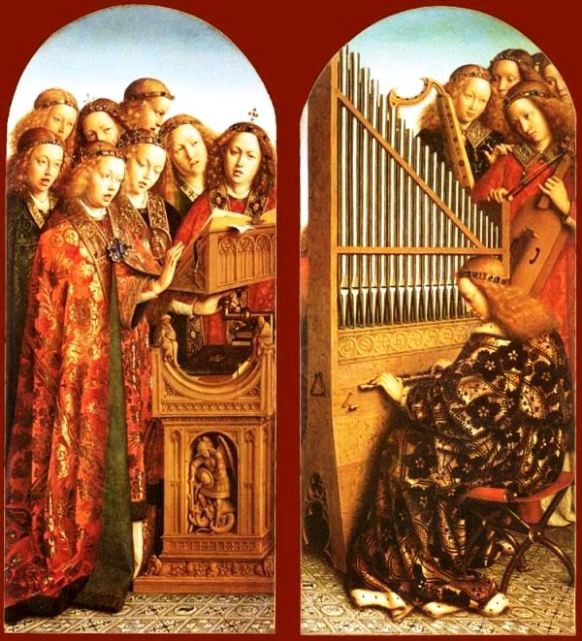h2>Dating : The Day the Music Died
Two years later, I remember it like it was yesterday. I was listening to some Coltrane that had come on the radio — Giant Steps, I think. I was feeling it, entering into that strange, sublime flow which marks the best sort of jazz. Then suddenly, it was gone. The radio signal had disappeared. At first I figured there was something wrong with my radio — it had broken, or the batteries had given out. It was only when I stepped outside that I realized this was something far worse: everyone’s radios had stopped.
In fact, I couldn’t hear a note of music anywhere.
Unbeknownst to us all, this was the start of the “revolution,” at the end of which the Régime came into power. Nobody had understood why they killed every radio signal. Once the gunshots started — a fitting counterfeit for the music that no longer was — we all registered that the rebels cut the radio signals to stifle the government’s communications and to sow chaos, ensuring an easier victory.
Before their revolution, they engaged in Guerrilla warfare —at first seemingly innocuous, hiding in the shadows, slowly wreaking havoc on our infrastructure and bureaucracy — until they finally attacked the government with unrelenting force. While they generally avoided civilians, some still got caught in the crossfire — including my brother. An insurmountable loss, infinitely more so than the music I’d never hear again.
But music — yes, music… the dismantling of the radio systems wasn’t just about sowing chaos or wreaking havoc. It was about the music. For reasons that may never become clear, the Régime ultimately wanted nothing more than to abolish music. All of their actions, right from the beginning, were simply means to this end.
They wanted to destroy the only thing that separated man from beast, speech from scream, dream from delusion: the ability to hum a tune, to listen, to sing, to play, to write, to love — music. Everyone called the leader of the Régime — though only in private and in the utmost secrecy — “the Undertaker.” A fitting epithet, given that he executed the spirit of music.
A loose circle of underground thinkers — the ones who still had the courage and audacity to write and lecture about the Régime— quietly circulated a few theories.
Perhaps the Undertaker recognized that music couldn’t be controlled, and that a lack of control would lead to a lack of power.
Perhaps he simply had no taste for music, or more likely, loathed it as a supposed parasite on the moral and intellectual life of humankind, at best nothing more than a distraction.
Maybe he recognized music as one of the few precious things that granted solace after a hard day’s work; one of man’s greatest respites and sanctuaries; a means of transcendence, so to speak.
Some thought that the Régime simply wanted to terrorize people, to make them miserable — because a miserable populace is ripe for manipulation; for subjugation.
In reality, it was probably a mixture of all of these motives. Malevolence knows no preference.
These theories may also explain why the Régime, since its inception, has sought to tear down every faith, every religion, every place of worship. Clearly the Undertaker had taken one of Marx’s absurdities seriously — that religion is the “opium of the people.” That it placates you, makes you complacent, causes you to disregard the material growth of society.
But this was all bullshit. Religion is — or should I say, was — the lifeblood of humanity, the ultimate source of strength and peace in the face of a grim and ugly world. In its truest form, religion awakened people to action; it fostered the most profound possible motivation to help and love your fellows: for God’s sake.
It was the Régime’s so-called secular “humanism” — with its lifeless promise of a far-flung utopia and empty creed filled with malignant platitudes — that was the real threat to human progress, material and spiritual. And yet, the Régime lifted this ideology up as a golden image; an idol before which we had no choice but to bow down.
In short order, every piece of sheet music, every instrument, every hymnal was systematically destroyed. Every night, as a show of power, members of the Régime would build huge bonfires with books and music as the tinder and fuel — just to mock us — until there was nothing left to burn. They would bring out confiscated violins and horns and clarinets and guitars — indeed, every sort of instrument — only to smash them to a pulp with sledge hammers. That cacophony of iron striking brass still lurks in my nightmares and haunts my waking hours.
Singing, in public or private, was a crime punishable by death — enforced with a fierce zero-tolerance policy. I lost many friends and relatives who couldn’t take the deafening silence of a life without music. Some formed choirs and sang in the town squares as a protest against the Régime. They were gunned down as their harmonies echoed in our ears — but more so in our hearts.
They gave us back the gift of music, even for just a wonderful, fleeting moment — and made the ultimate sacrifice to do so. We can never thank them enough. Because in a sense, life is music — it has its rhythm, its themes, its dissonance, its harmony — but what then is life without music? Is it still life? Or simply death, prolonged?
It’s been said that God gave us music that we might pray without words. I’d never heard anything more true than that. In stealing our music, our faith, and ultimately our freedom, the Régime broke our spirits and plundered our souls. But despite it all, they can never steal the intimacy of our thoughts, where music can — and does —freely resound.


